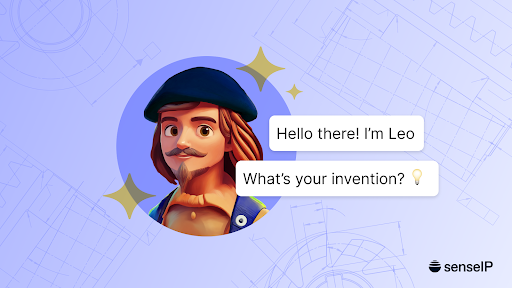Future-Proofing Innovation: senseIP's Mission in the Age of AI

The rapid advancement of artificial intelligence (AI) has made innovation more crucial (or more vulnerable) than ever. Protecting intellectual property (IP) is a strategic necessity for entrepreneurs, startups, and businesses in this landscape. However, there are barriers (e.g., high costs, slow processes, legal complexities) that discourage them from doing so, leaving them exposed to competitors who can maneuver through the legal system more efficiently. How can innovators safeguard their ideas without being hindered by these obstacles, especially at a time when AI can be a tool for progress and a weapon for exploitation? senseIP, a platform that aims to redefine how IP is managed in the AI age, intends to answer this query.
Ophir Kretzer-Katzir, co-founder and CEO of senseIP, states that the broader context of IP in the era of AI is complex. Yes, AI is accelerating innovation. However, the rise of AI-driven IP tools means competitors can analyze and iterate upon existing patents faster. This creates a paradox: the very technology fueling progress is also making it easier for ideas to be copied, modified, and resold with minor alterations that circumvent traditional legal protections.
Many innovators hesitate to file patents because of this, fearing they might be outpaced or have their ideas exploited. Some worry that by making their invention public through a patent filing, they're simply handing over a blueprint for competitors to tweak and capitalize on. Needless to say, this hesitation stifles innovation at a time when it should be thriving.
Katzir further highlights the pain points: competition and funding. "Ask any entrepreneur what keeps them up at night, and it won't be patents," he says. "It'll be competitors outpacing them and investors questioning their value. But here's the reality: IP is tied to both of those things. If you don't have a strong IP strategy, you're more vulnerable to competition, and investors are less likely to back you."

senseIP was created to address not only the inefficiency in the traditional IP process but to give inventors access to a strong IP strategy that addresses business goals.
Obtaining a patent or simply assessing whether an invention is viable has been an arduous process. Inventors and businesses have had to rely on IP attorneys. Their expertise is invaluable but comes at a high cost and with significant time constraints. A simple freedom-to-operate analysis—determining whether an idea infringes on existing patents—can take weeks and thousands of dollars. This delay forces many businesses to make a difficult choice: pause development while waiting for legal clarity, pushing forward blindly and risking infringement lawsuits or wasted resources.
Co-founder and CEO of senseIP Ophir Kretzer-Katzir stresses that this traditional approach is no longer viable given the speed at which AI innovations are being introduced. senseIP disrupts this model by leveraging AI to provide rapid, comprehensive, and actionable insights within minutes. This capability can enable innovators to instantly assess their IP landscape, identify potential risks, and secure their ideas without the bottlenecks.
senseIP leverages AI to deliver real-time analysis, step-by-step guidance, and fully automated support. This means inventors can instantly assess whether their idea is unique, refine it with precise feedback, and secure protection without the delays and costs associated with conventional IP services. The platform's AI assistant, Leo, eliminates the need for back-and-forth communication with attorneys, summarises the idea in simple language, and doesn't use inaccessible legal jargon. Additionally, users gain Leo's expertise in generating immediate responses to patent office inquiries. What does this mean? Innovators are free to move forward with their idea without being inhibited by a painfully slow legal process and are given back visibility and control over their IP journey.
Understanding inventors' concerns, senseIP has also made security a top priority. From the moment an idea is entered into the platform, it's secured within an isolated digital environment that even senseIP's own team cannot access. No data is used to train the system, and advanced encryption safeguards all information.
Ultimately, future-proofing intellectual property is crucial in the age of AI. With senseIP, the barriers that once made IP protection difficult—high costs, long wait times, legal complexity—no longer exist.
© Copyright IBTimes 2024. All rights reserved.





















